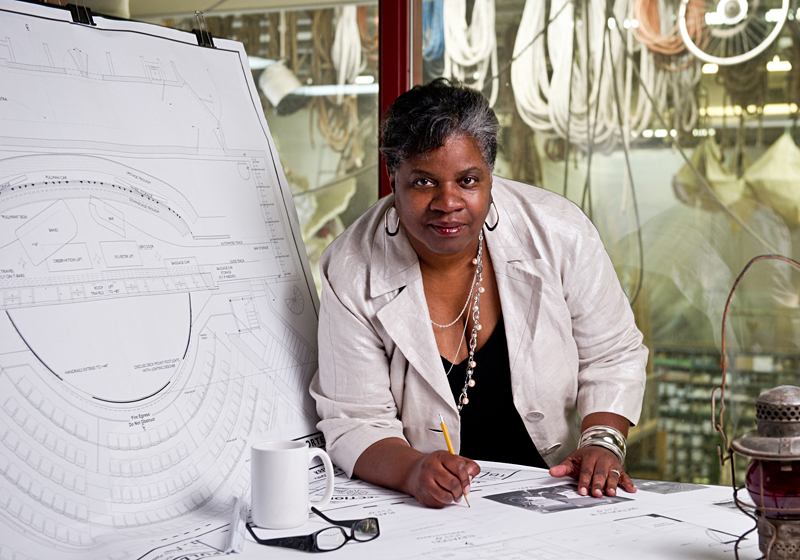Imagine it’s the Great Depression and you’re black. Your grandparents might’ve been someone’s property. You are either officially or unofficially unwelcome in most establishments. Straying into the wrong neighborhood could get you killed. Economic times are worse than hard. That’s why, from the Civil War to the ’60s, one of the most coveted jobs for a black man was to be a porter for the Pullman Company, whose luxury train cars pampered affluent white travelers. It could be a ticket to the middle class (especially after the porters formed the country’s first African-American union), and it was also a secret broadcasting network: The porters distributed Northern newspapers to towns in the rural South, advertising the jobs that spurred the Great Migration to the industrial belt (and eventually Seattle, too).
“Being a Pullman porter,” explains playwright Cheryl L. West, “afforded you a certain opportunity that most African-Americans didn’t have. This was an opportunity for black men [just] off the plantation to have good jobs, to see the country, to have access to people who had all kinds of information. The Pullman porters were our cultural conduits in the South.”
Though Chicago-born and today a Seattleite, West has family roots in the Old South. Two of her grandparents were Mississippi sharecroppers; another worked on a postal train, and his stories primed her interest in African-Americans on the rails. Those stories, along with the history of the Pullman porters, inform her new play Pullman Porter Blues, commissioned by Seattle Repertory Theatre to open its 50th season. Sitting in the subterranean guts of the Bagley Wright before rehearsals, West explains how the porters’ newspapers were received in the South. “They would find someone who could read, and everyone would come, and they would read the newspaper. Otherwise they would never have gotten any information that there was a large world beyond the plantation.”
Set on a train traveling from Chicago to New Orleans in 1937, the play focuses on three generations of a Pullman “dynasty”: Monroe Sykes, who came from a plantation and doesn’t make waves; his son Sylvester, who’s secretly forming a union; and his grandson Cephas, who has tasted university life but dismays his elders by taking a Pullman job. According to West, those jobs came mainly by referral, so a new hire’s behavior reflected on his nominators. This provides ample conflict when Cephas shelters a white 17-year-old stowaway named Lutie, the daughter of a hobo.
Despite Lutie’s gratitude and attraction to Cephas, her racism pops out unwittingly, illustrating Monroe’s adage that “Sugar turns to shit in a blink.” West broadens the racial context by setting the play on the night Joe Louis defeated white boxing champ James J. Braddock, a watershed moment. The play’s Braddock equivalent is a conductor named Tex.
With an onstage band playing blues and gospel, the three Sykes men sing numbers including Rosetta Tharpe’s “This Train.” Another central character, the boozy (for good reason) Billie Holiday–like lounge singer Juba, covers Bessie Smith’s “New Orleans Hop Scop Blues” and “I Need a Little Sugar in My Bowl.”
West isn’t new to musical and historical dramas. She previously wrote the libretto for the Rep’s 1998 Play On, a jazz musical set in the Harlem Renaissance, which later went to Broadway. Theatergoers may also recall her 2000 Jar the Floor at the Rep, about four generations of black women, and Seattle Children’s Theatre’s 2007 production of her Addy: An American Girl Story, about a slave during the Civil War.
Her knack for idiomatic Southern speech (e.g., knees are “prayer knockers”) came from her grandparents, she tells me. “When I listened, I heard poetry in how they talked, how they spoke, how they twisted a phrase. And I became a writer to legitimize that poetry as being just as wonderful and musical as what we have to learn in the King’s English.”








